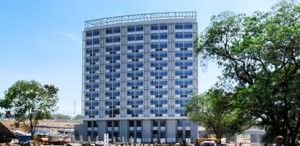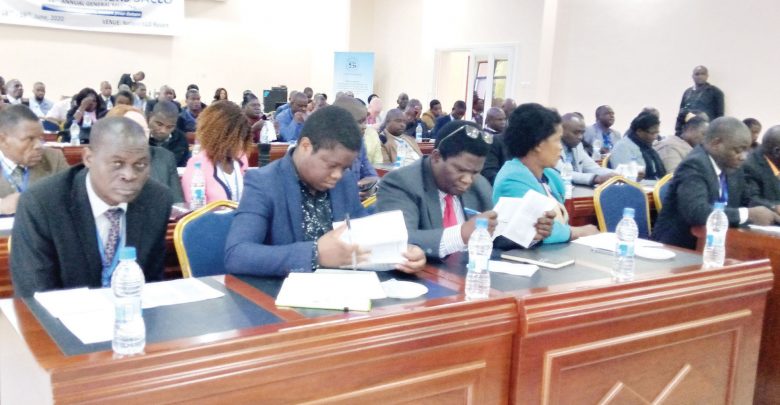China’s presence in Malawi has been growing steadily since the two countries established diplomatic ties in 2007 and signed a trade agreement Driving through Malawi’s capital, Lilongwe, it is difficult to miss the imposing building hitting its finale in the city centre. It’s the country’ first five-star hotel, $90m worth of well-appointed rooms, a state-of- the-art conference centre and 14 opulent presidential suites. The hotel is being built by the Shanghai Construction Company, a Chinese firm, and is one of numerous projects funded in line with a pledge of $260m of concessionary loans, grants and aid from China to Malawi to support development, including infrastructure.

According to China’s ambassador to Malawi, Pan Hejun, the structures would prop up Malawi as a must-go international destination. “This will attract more and more foreign tourists to Malawi and enable Malawi to host international conferences such as the AU [African Union] summit” said Pan. Chinese construction companies have been busy in Malawi. The parliament now operates from a grand new building that was opened in June 2010. That project cost around $41m. China is also building a university of science and technology in Thyolo, which is at an advanced stage.
“The university, which will accommodate more than 3,000 students with advanced facilities, will be one of the best universities in south-eastern Africa, and will make great contributions to the national development of Malawi” said Pan. Relations growing steadily Chinese construction companies are also building a secondary school in Thyolo, and a 100km road between the northern districts of Karonga and Chitipa.
Beijing has also promised to build a China-Africa Friendship school in Lilongwe, establish solar and biogas pilot projects, and set up an agricultural technology demonstration centre. China’s presence in Malawi has been growing steadily since the two countries established diplomatic ties in December 2007, and Malawi abandoned its links to Taiwan after 41 years. A memorandum of understanding covering industry, trade and investment was signed between the two countries in May 2008, committing China to help in increasing the productive capacity of Malawi in tobacco, cotton, mining, forestry, fertiliser production and in processing hides and skins.
A 2010 report from the ministry of trade indicates that the value of trade between the two countries has doubled since 2007, reaching $100m in 2010. It is rapid growth, though still dwarfed by trade with South Africa, which accounts for just over 40% of Malawi’ total trade of $3.2bn.
Some problems This year, Chinese nationals working in Malawi in construction or as traders have featured in a number of unwelcome headlines. In January, police at the international airport caught Zhang Xiang-quian trying to smuggle 3.5kg of ivory bangles, curios and necklaces out of the country. The same day, Jennifer Li was arrested when she tried to bribe police to release Zhang. The two “who both held senior positions with the Shanghai Construction Company” were fined and deported. In February, the owner of the China Superscope Media Company, Ning Naixing, was apprehended at the airport with 1.5kg of ivory. Police asserted the ivory in both cases originated from elephants poached in Malawi. The ministry of tourism issued a statement on February 11 warning against trafficking of ivory.
Chinese traders ‘who have established a firm foothold in the wholesale and retail sectors in Malawi’ have also run foul of the law. Yani Huang, a businesswoman, was arrested and fined for violating foreign exchange controls in November 2010, when she tried to leave the country with an undeclared $18,350. A few months earlier, another Chinese national was arrested trying to take $144,000 out of the country.
Malawi is experiencing acute shortages of foreign exchange, leading to strict controls on the export of hard currency. This complicates life for Chinese traders who want to repatriate profits.
Local traders are also anxious about competition from the new arrivals. “Some are setting up small-scale businesses and competing with indigenous traders. They are making life difficult for us” Maddy Gawani, a trader who runs a clothes shop in Lilongwe lamented.
She said there are big Chinese- owned wholesale shops in Lilongwe’s Old Town, a less affluent area of the capital. “Many items in the Chinese shops are cheap but not very durable. A lot of people now shop from the Chinese, who bring in many things in bulk. We are not happy as local traders” said Gawani.
Relations between the Chinese traders and their clients are sometimes tense as well. Last year, Chen Bo-wet was arrested in the lake district of Mangochi after he allegedly forced a woman he suspected of stealing from his shop to undress in the presence of other customers. Nothing was found on the woman, and he was arrested after complaints.
Worst fears unrealised When the memorandum of understanding on trade and investment was signed, local groups feared it would have a negative impact on the country. At the time, Mavuto Bamusi, a network co-ordinator of the Human Rights Consultative Committee, which promotes human rights, including economic rights, in Malawi, said the evidence was that Chinese investment had harmed the interest of poor people in some countries.
“We know that the Chinese usually bring in their own workers when they invest in poor countries and that they have been accused of dumping cheap goods on such countries’ markets. Civil society will be quick to raise an alarm if such malpractices happen here” Bamusi said.
But the Malawi Congress of Trade Unions has been keeping a close eye on the situation. The MCTU secretary general, Robert Mkwezalamba, said that when they first arrived in the country, Chinese construction companies either paid their Malawian workers below the minimum wage or paid them in kind in the form of clothing, bicycles, maize flour and sugar. In some cases, workers were not provided with protective gear.
They were paying the Malawi workers just about $13 per month when the country’s acceptable minimum wage is $20.
“Some Chinese factories were locking up the workers [in their workplace] overnight” said Mkwezalamba. But, he said, companies have responded to the MCTU’s objections. “We have been asking them to change and they are accepting our demands” he said. “We are also happy that the construction companies are transferring advanced skills to local staff”




